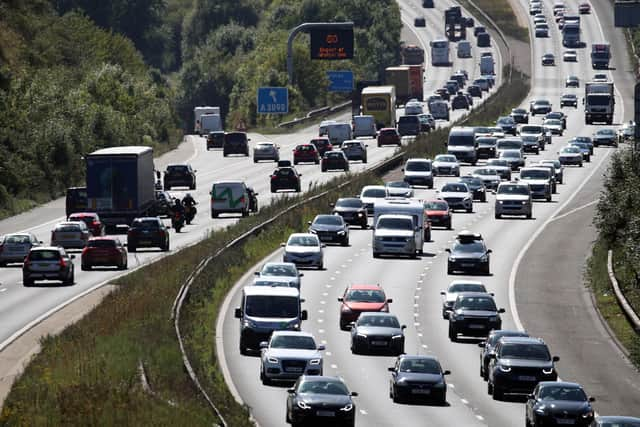Why motorists who can’t afford to pay for their insurance annually are being penalised: Rocio Concha
The market research agency Consumer Intelligence recently reported that the average quoted motor insurance premium in the year to November increased by 67.2 per cent - a record growth of more than two thirds.
Ultimately, a number of factors go into determining an insurer’s quote for a particular driver, including age, occupation, postcode, type of vehicle driven and history of previous accidents. The idea is that the insurer works out how risky it would be to offer you insurance.
Advertisement
Hide AdAdvertisement
Hide AdHowever, there is another factor that determines the cost of the insurance that requires urgent action.


When motorists take out car insurance policies, they are often given the opportunity to pay all in one go annually or to split the cost in monthly instalments.
As our new research underlines, those who opt to pay monthly can end up spending hundreds of pounds more over the course of a year than those who pay annually. That issue is compounded by the fact that those who choose to pay monthly are typically younger drivers, who are among the least financially resilient.
Which? used sales data from GoCompare to find the average difference between prices paid by annual and monthly customers. In September 2023, monthly customers paid £892 on average for a year’s cover, while annual payers paid £583 - a cash difference of £309. A year prior, the gap was £251 (£738 monthly vs £487 annually), so has steadily widened in cash terms.
Advertisement
Hide AdAdvertisement
Hide AdThis could be explained in part by the fact that younger drivers, who typically pay the highest premiums, are also more likely to pay monthly.
To understand specifically how much extra individuals are being quoted to pay monthly versus annually, we also analysed the cheapest 15 deals available to three real people - a GP living in Kent (59 year-old), a journalist living in London (39-year-old) and a leisure-centre worker living in Warwickshire (18 year-old) - via a comparison website.
The research found that the 18-year-old faced the largest range of annual percentage rates (APRs) (from 20.50 per cent to 36.33 per cent) compared to 20.90 per cent-30.12 per cent for the 39-year-old. The average extra cost just for paying monthly for the 18-year-old was £459.
The option to pay monthly is of course an important service for customers to help spread the cost of insurance but prices need to be fair. Which? now wants to see action taken by the regulator to end this injustice, which it first warned about five years ago.
Advertisement
Hide AdAdvertisement
Hide AdWe want to see the regulator to set out an action plan, clearly detailing how it is going to force insurance firms to offer value for money for their customers - a similar approach to how the FCA is tackling the issue of meagre savings rates offered by some high street banks.
As part of its action plan, Which? believes that the FCA should commit to publishing an analysis every six months of insurance firms’ interest rates, with league tables naming and shaming the worst offenders. Having already warned the industry at least twice, the regulator should also assess how much it costs firms to provide premium credit, and take immediate action against providers that are charging monthly customers excessive interest rates.
Consumers are already battling cost pressures in a number of other areas. Those less able to pay for their motor insurance in one go shouldn’t be punished even further by unjustifiably high interest rates on top of their premiums.
Comment Guidelines
National World encourages reader discussion on our stories. User feedback, insights and back-and-forth exchanges add a rich layer of context to reporting. Please review our Community Guidelines before commenting.